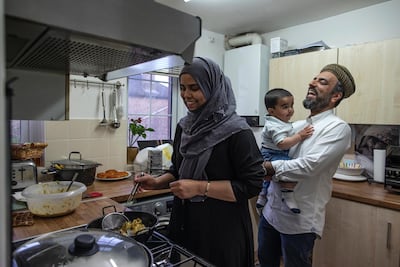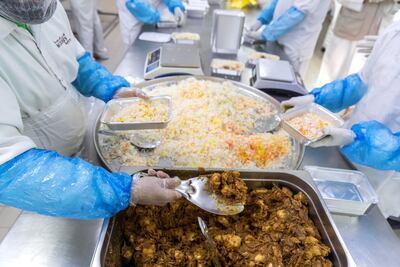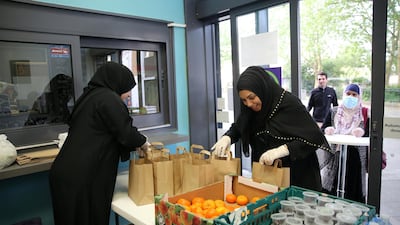Ramadan is upon us, a month of spiritual reflection and physical constraint. It is also a month of joy, festivity and togetherness. For many of us, Ramadan is rooted in a childhood nostalgia that prompts a special feeling of the times we have enjoyed Ramadan traditions, including the food and the gifts.
But in this nostalgic view of Ramadan, there are new habits that we need to be alert to that tell us more about ourselves than we might think. We have to find a way through the paradox of upholding tradition and keeping pace with modern life, all the while maintaining the spiritual practice.
In the UK, the favourite food for iftar for 18-24 year olds is chicken and chips. A revealing finding, it tells us that Ramadan traditions can and do change. But it also tells us that Ramadan reflects different cultures and this is not a loss but a sort of evolution. It shows us how cultures and the practice of faith can be independent in different parts of the Muslim world. In this case, it’s a very British kind of iftar. And we should celebrate the various ways that Muslims eat, drink, celebrate and be spiritual. We should see more of the traditions from around the world, where Muslims learn from each other about how to create a feel of Ramadan.

Anyone who fasts during Ramadan will know the added importance of oral hygiene, due to not eating and drinking for an extended period. No surprise then that sales of miswak, twigs from the tree Salvadora Persica that are traditionally used as toothbrushes, rise during Ramadan. It’s just a hint to the wider shift in consumer behaviour that the world’s global brands are slowly starting to realise. Ramadan isn’t just about industrial-size bags of rice and crates of chopped tomatoes. Brands need to give far more holistic support to their Muslim consumers. And as the iftar trend for eating chicken and chips shows, brands also need to move with the times and not be be trapped in outdated ideas of what Ramadan is supposed to be.
Brands and societies need to think about what Ramadan could and should be about. Anecdotally we all have a sense that women, for a month, spend far more time in the kitchen cooking than we would expect, especially when the focus should not be entirely about eating. Nearly a decade ago, a study by AMRB, a market research firm in Dubai found a 43 per cent increase in the number of dishes prepared, 17 per cent more time spent preparing each dish, and more quantities of food being cooked, due to more people at each occasion.
My first reaction to that was "gender equality, hello?" But more seriously, if a month is about spirituality, mindfulness and self-development, why is more rather than less time being spent on food preparation? And in households across the world, this burden falls largely on women. Brands, society and communities need to have an honest conversation about how to shift Ramadan from being a time of food indulgence to the spiritual celebration we all want it to be. And in the process, also rebalance the responsibilities of Ramadan between men and women, so the latter can also focus on their spirituality. And for those men who say that cooking is an act of worship, why aren’t men doing more of it?

For me this leads to one of the most troubling paradoxes of Ramadan. There are many reasons people cite for the prescription to fast. Some of the most common include ensuring we remember the hunger of those who do not have food, and another to free our bodies from physical occupation so we can concentrate on the spiritual. Yet, the irony is that we during Ramadan we cook more food and we waste more food. This contravenes the very stern Islamic principle to avoid waste or asraaf at all costs. We can think of all the incidences in our lives where we have experienced this. But we can be blind to the scale of the problem in our everyday lives and the extent to which our iftar tables may add to the problem.
Food waste makes up one fifth of Dubai’s rubbish, but this rises to over half during Ramadan. In recent years there have been great initiatives such as food sharing fridges. But the problem of food waste still needs to be tackled at source. During Ramadan, Bahrain’s food waste reportedly increases by 50 per cent. In Malaysia it rises 15-20 per cent and food wastage during this time and it could feed nearly 3 million people three times daily.
Campaigns like Love Food Hate Waste in the UK give ideas about how to reduce food waste, while maintaining the joy of iftars. These vary from simple solutions such as smaller portions to reflecting to freezing leftovers, repurposing them with sauces, toppings or wraps.
Ramadan is undoubtedly about tradition and celebration. But the open secrets of Ramadan like these mean that it should also be a modern, inclusive and pioneering time, one during which its ever evolving traditions amplify rather than detract from its spiritual purpose.












